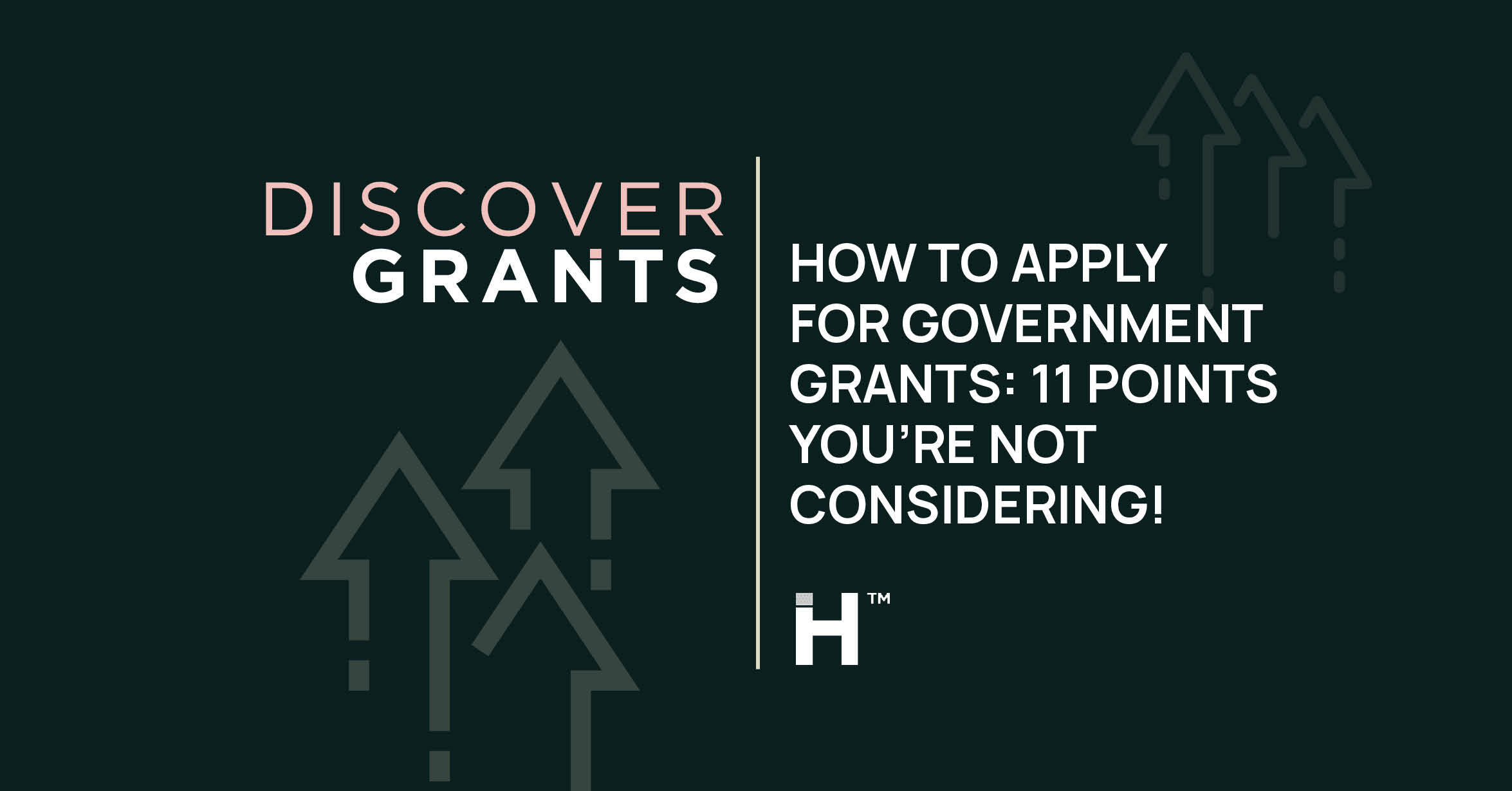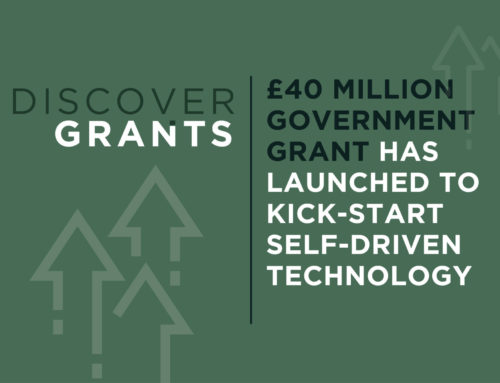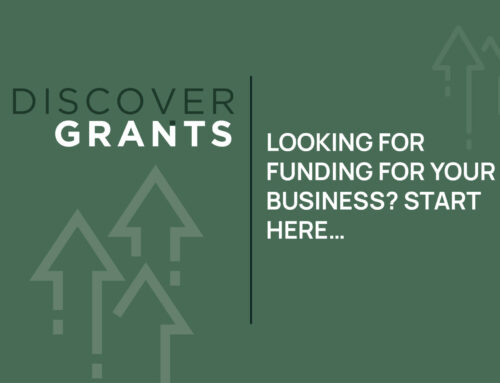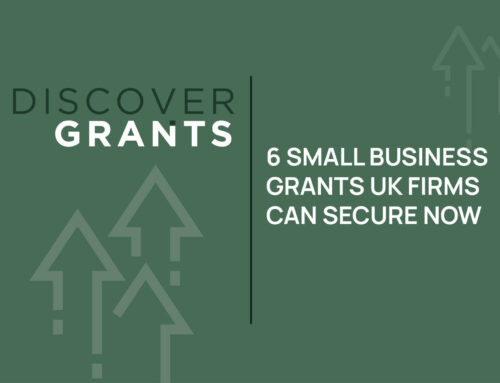How to apply for government grants – A thorough guide
Are you wondering how to apply for government grants? Government grants can seem daunting with their competitive nature. This is where Discover Grants comes in. We’ll walk you through how to apply for government grants, teaching you what to do…and what not to do. By the end, you’ll be ready to apply for government grants.
The difference between grants & loans
As a business owner/non-profit organisation, it’s important to recognise the difference between these two forms of government support. Here are some distinctions between the two…
Grants
- Distribution of funds – Grants are typically provided by a larger body or organisation.
- A specific project – Usually the funder needs to provide funding to a specific project, unlike loans.
- The project hasn’t started/timescale– The project should generally be in its early phases. Alongside this, there is a relatively strict timeline for the funding.
- Non-repayable payment – You have no obligation to pay this back, so the fund can be directed towards the project you’re working on.
- Active reporting & evaluation – As part of the grant, it’s likely that a monitoring system needs to be in place. This is to ensure that the funding is fulfilling its potential and adhering to the funder’s conditions.
- Refund potential – If the conditions behind a grant aren’t met, the funder can and will request the funds back.
Loans
- Repayable – Loans are required to be paid back to the lender.
- Interest rates – These can vary depending on the type of interest.
- Many opportunities – There are far more loans due to their payback quality, alongside the profitability offered due to interest.
- Wider purpose – Loans can be provided for any number of reasons, as opposed to the limited nature of grants.
Understanding the motivations behind a grant
It’s a question not often asked but understanding the reasons behind the funder’s aims can help in achieving application victory. Organisations such as the British Council and Innovate UK are aiming to meet quotas and fulfil their budget. The closer your aims correlate to their aims, the more chance you have of winning. A funder’s aims are a vital aspect when considering how to apply for government grants.
Thinking outside the box
Government grants can be an amazing source of support for your organisation, whether you’re a business or a non-profit. However, there’s more support out there for you. For instance, if the funding body is offering mentorship, support, skills, and business advice, this is incredibly valuable. Although it doesn’t offer immediate financial investment, it still offers a valuable service.
- Mentorship – Having an experienced business advisor can really hone your search for the right opportunities as either a business or non-profit. They can direct you to relevant ongoing support and strategise your organisation for growth and development.
- Skills/training – Providing training for your company can be a real goldmine if you’re a start-up. Usually, training can be financially intensive, so having a free option can really boost funding elsewhere. With adequate training, your team’s productivity will be higher.
- Soft loans – These loans are often provided by the government for start-ups, with attractive interest and payback rates. These loans can be as low as 6% in interest rates and can provide a repayment term of five years.
11 tips to consider before applying for government grants
1. Do you meet the criteria?
Grants can be competitive. So, to stand a chance when you’re applying for one, you have to consider whether you’re eligible or not. Read the documentation fully and familiarise yourself with the scope and eligibility criteria.
2. A financial/business plan
The tighter your budget, the better. The funder needs to see that you’ve got great fiscal responsibility so that their money is utilised effectively. A financial plan can convey your financial viability to the funder. If you’re a business, have you begun trading? Have you got your balance sheet/cash flow statements to hand? This is a vital component when applying for government grants.
3. Get to know the funder
What are their grant objectives? How did they begin? What elements from your company/non-profit correlate with their mission objectives?
4. What do they cover?
What’s the minimum/maximum amount they’re willing to cover? Do your project requirements meet that?
5. When is the deadline?
As stated above, grants can be strict with their timeline, only offering x amount of support across a few months. Can you feasibly complete your project in the allotted time?
6. Matching investments
If the government grant is willing to invest £10,000, do you have that to match it? It’s a great way for the government to know that you’re as invested in the project as they are.
7. Read the grant guidelines
Usually, the grant will have a guidance document outlining what does and doesn’t work for them. Refer to this regularly whilst you’re writing your application.
8. Start applying early
With everything considered, you need to approach the funder early. The grant funding may be allocated from a limited pot of investment. It stands to reason that there’ll be more funding available early on.
9. Financial viability
As the grant award body is giving this to you for free, they need to verify your organisation’s longevity. What can you provide that suggests that you will still be operational two to five years down the line?
10. Social & financial benefits
How many people will you affect with this project? Can you forecast any immediate or gradual changes to your local community due to the project?
11. Your area of service
Does the grant offer funds for your area? Or are its objectives on a national level? Knowing the difference can be vital in assessing your chance of success.
Rejection and how to deal with it
Due to the competitive nature of grants, you may not win the first, or second time. However, this can be a fantastic opportunity to hone and improve your future grant submissions! Asking for feedback can be a great way to ascertain what went wrong, and how you could improve.
In summary
Now you ‘comfortably’ know how to apply for government grants. What if you need a quick recap? Discover Grants has your back:
- The difference between grants and loans – A summary of the specific differences between grants and loans.
- Thinking outside the box – Considering alternative grants that can support your organisation such as soft loans, mentorship and skills/training.
- 11 things you need before applying for a government grant:
- Do you meet the criteria? – Making sure that you check out the grant criteria to ensure eligibility.
- A financial/business plan – The power of a developed financial/business plan in confirming your financial viability.
- Knowing the funder – What are their grant objectives?
- What do they cover? – Do they cover your cause/service/industry? Contact them if you’re still unsure.
- When is the deadline? – Can you complete your project within the time given?
- Matching investments – Are you prepared to match the amount of funding that the grant body is proposing?
- Read the grant guidelines – Taking time to digest the guidance document that the grant body releases.
- Start applying early – Making sure to access the most of limited funding by applying early.
- Financial viability – Will your organisation/non-profit still be active two to five years from now? How can you prove this?
- Social & financial benefits – What are you providing to the local community? Is there a measurable outcome to your project?
- Your area of service – Is your grant focused on your area, or is it national in its coverage?
Our services
Grant Writing
Our Grant Writing Service is for businesses who want to start applying for grants, but don’t know where to begin. They can also help businesses who have been applying for grants but aren’t seeing success.
Our Grant Writing Consultants have over 60 years of experience in bidding for funding and grants. From start-up business grants to self-employed business grants. They can take care of the whole thing for you – they’ll even submit it on your behalf.
Get in touch to find out how we can help your business grow!
Grant Tracker
You can find grants on our Business Grant Tracker. Currently, we have over 1,700 live business grant and funding opportunities. Our team have manually tracked 1,500+ data streams searching for business grant opportunities. Each one is then uploaded to one central system, streamlining the process.
All you need to do to gain access is sign up for free.
Find more helpful tips and advice in our blogs. We cover topics including:





